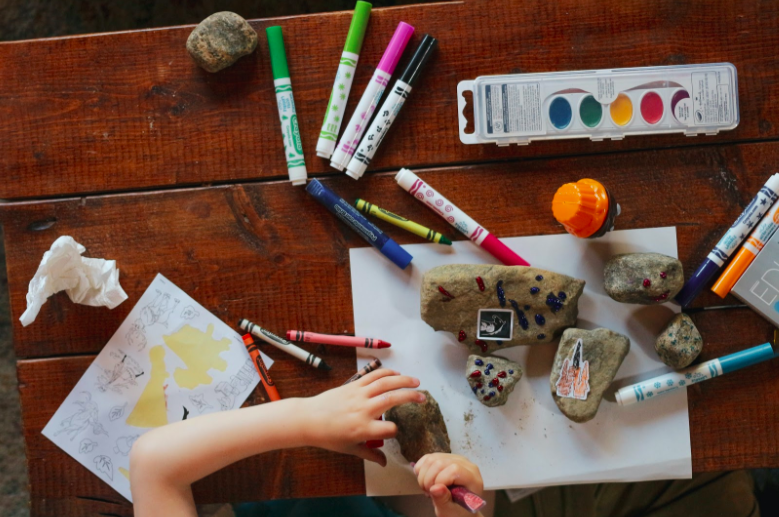If you’re working with a speech pathologist to help improve your child’s speech, language, or communication development, it’s important to practice their new skills at home. Activities at home on top of positive reinforcement can help your child make huge strides towards speaking clearly!
General tips
Before starting your at-home speech therapy activities, here are some general tips you should consider:
- Practice. It’s good to encourage your child to say the things they have difficulty with. Repetition is key here, and it’s an easy thing to make into a game.
- Positive reinforcement. It’s important to focus on what a child can do instead of what they can’t. One should pay attention to improvements in speech & praise small, mundane victories unrelated to speech progress, like getting an “A” on a test or taking out the trash.
- Minimize background noise. Before beginning your activity, take a sweep of the room you’ll be in and lower the volume on any TVs, radios, or phones that will be in the same room or nearby. This will help avoid distractions while you play with your child for both you and them.
- Listen. Studies show that kids learn best when they’re directly spoken to, listened to, and made eye contact with. When your kid is speaking, answer them with questions and be attentive to their replies. Make sure not to make them feel pressured if they start to struggle with a word or sound. Make them feel like they’re having a normal conversation, so don’t focus too much on them and don’t focus too little.
Speech therapy activities at home
When it comes to training your kid how to do something, it’s best to make sure the practice has two things: fun and treats. Here are four ways you can make speech therapy activities more fun at home.
Incorporate some movement:
Kids love to move! Getting them to move their bodies while they practice their words is a great way to make them love practice. Some moving games that can be used for speech therapy practices are:
- Frog Hop. in this indoor game, all you have to do is choose some words that your child is working on (6 or more is best), write them on a piece of paper, and scatter them around your living room to signify “lilly pads”.
- When the game is in play, your child has to jump on each lily pad (can be multiple jumps) and say the word correctly several times (remember, repetition!) to move to the next word. If they finish the lily pad course they get a reward–maybe they can help you pick the words for the next game.
- Yoga Poses. This is another fun indoor game: research yoga poses that are best for kids and have yours hold this pose, repeating their practice words until they can’t hold the pose anymore. The number of times they were able to repeat their word correctly is the number of jellybeans (or some other treat) they get.
Make it an interactive game!
Does your child love puzzles or playing with playdough? There are some easy ways to add word practicing into their hobbies.
- Puzzling Words. When your child is working on a puzzle, have some pieces in your possession. In order to get a piece, they have to say one of their practice words correctly. Simple and easy way to practice this multiple times a day.
- Playdough Reign. In a similar vein, if your kid loves playdough, divide their daily lump of playdough in pieces–and they have to say a word correctly in order to get the next piece. When they have it all they can play!
Do something fun while drilling flashcards
Flashcards are an essential part of speech therapy practices since they can be especially helpful with sounding out specific syllables. With these suggestions, they can be made even more fun.
- Make Me Jump: Each time your child successfully says a word or sound, have someone else (you or another adult/child) jump or do another action, like squats or running to the mailbox and back. To give it a time limit (so the other person doesn’t get too tired) see how many actions your kid can get the other person to do in 5 minutes!
- Go Fish Phonics. Buy a pack of cards and write a practice word on the back of a few of them (or all, if you want). When you’re playing cards with your child, have them repeat the word on each card they draw, with the card’s number indicating the number of times they have to repeat it (i.e. five of hearts = say the word five times).
Practicing at home is an essential part of your child’s speech-language development program. With these fun games, practice doesn’t have to feel like a chore, and you can involve the whole family!








